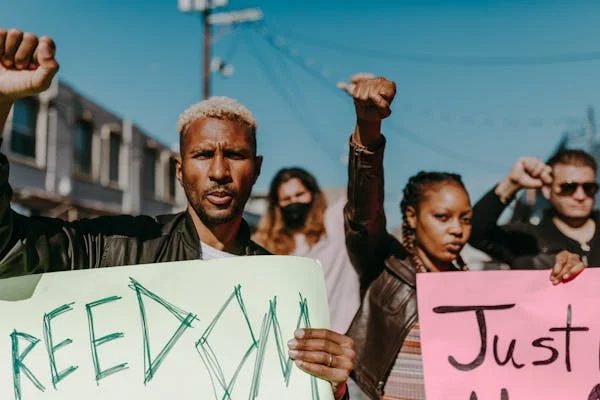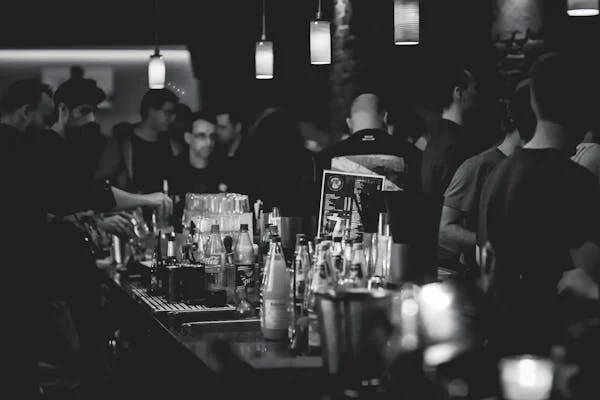In 2025, something unusual happened at REI.
Not on the shelves.
Not at the cash registers.
Not on the hiking trails.
But deep inside the company’s boardroom.
It started quietly.
A whisper.
A few angry emails.
A few uncomfortable meetings.
And then suddenly, it was everywhere:
The campaign to disrupt REI’s board elections.
What was once a peaceful outdoor brand found itself in the middle of a political storm — a battle over workers’ rights, corporate values, and the future of one of America’s most beloved companies.
This is the full story of how it all happened — and why it matters.
REI: More Than Just a Store
For millions of Americans, REI isn’t just a place to buy a tent or a new pair of hiking boots.
It’s a symbol.
A co-op.
A community.
A company that promised to be different.
Founded in 1938 by a group of outdoor lovers, REI grew into a national brand based on a simple idea:
Put people and the planet first.
They closed on Black Friday to give employees time outdoors.
They pushed for sustainable products.
They funded conservation efforts.
Customers didn’t just shop at REI.
They believed in REI.
They thought REI was on their side.
But by 2025, cracks were starting to show.
Especially for the people working behind the scenes.
The Workers Speak Out
In early 2024, murmurs of dissatisfaction started to grow among REI employees — the salespeople, warehouse workers, and gear experts who kept the company running.
Many were frustrated.
They said REI talked about values but didn’t live up to them.
Complaints included:
- Low pay.
- Short-staffed stores.
- Poor health benefits.
- Union-busting efforts whenever workers tried to organize.
Employees at a few stores even tried to form unions — only to face aggressive pushback from management.
The company that preached “community” seemed more interested in crushing any challenge to its authority.
It felt hypocritical.
It felt wrong.
And a group of workers decided they wouldn’t stay silent anymore.
They would take their fight straight to the top — to the board of directors themselves.
The Birth of a Movement
The idea started small.
A few workers, some former employees, and a handful of frustrated co-op members started talking online.
What if, they asked, they ran their own candidates for the REI board?
After all, REI isn’t a regular company.
It’s a co-op — owned by its members.
Every member gets a vote.
Every vote matters.
Technically, the members are the boss.
But for years, hardly anyone paid attention to the board elections.
Most people just ignored the ballot when it showed up in their inbox.
The current board was filled with corporate executives — people from finance, tech, law.
Not exactly mountain climbers or kayak instructors.
Definitely not warehouse workers.
The movement decided it was time to change that.
They would organize.
They would campaign.
They would wake people up.
And they would disrupt the cozy world of the REI board.
Building the Campaign
It wasn’t easy.
The REI board elections are built to be quiet and boring.
The company doesn’t encourage debate.
It doesn’t promote outsider candidates.
The official process favors the people the board itself nominates — handpicked insiders.
But the movement found ways around it.
They set up independent websites.
They organized Zoom town halls.
They handed out flyers at REI stores — standing in the parking lot, talking to customers.
They made videos showing the gap between REI’s public image and the reality workers faced.
One viral post showed a grinning CEO talking about “respecting nature” — while store workers described grueling shifts with no overtime pay.
The campaign didn’t have much money.
But it had passion.
It had heart.
And it had the truth.
Meet the Challenger Candidates
Three workers stepped forward to run for the board:
- Maria Lopez — a former REI store employee who was fired after trying to start a union.
- Chris Patel — a longtime REI warehouse worker who barely made a living wage.
- Sasha Nguyen — an outdoor guide and activist who fought for Indigenous land rights.
They weren’t corporate.
They weren’t polished.
They were real.
And they spoke a language many REI members hadn’t heard from board candidates before — plain, honest talk about fairness, dignity, and living up to REI’s own promises.
They didn’t just want better pay.
They wanted REI to be the company it said it was.
The Backlash
REI’s leadership didn’t stay quiet.
Behind the scenes, the company launched a counter-campaign.
Emails went out to members, urging them to support the “official” slate of candidates.
Subtle warnings floated around stores:
talk too much about the election, and you might find yourself in trouble.
Internal memos described the workers’ campaign as “disruptive” and “dangerous.”
Some challenger supporters were banned from handing out flyers in REI parking lots.
A few workers even said managers threatened to cut their hours if they got involved.
The company that celebrated “the power of community” seemed terrified of a real community organizing for change.
It wasn’t just disappointing.
It was revealing.
The Role of Social Media
As with so many modern movements, social media became the battleground.
TikTok, Instagram, and Twitter exploded with videos and posts:
- Workers sharing their stories.
- Customers pledging to vote for the challenger candidates.
- Former employees exposing union-busting tactics.
The hashtag #RealREI started trending.
Some celebrities — climbers, skiers, hikers — spoke out too.
Big names in the outdoor world posted videos supporting the campaign.
They said REI couldn’t claim to love the outdoors while mistreating the people who helped everyone enjoy it.
It became a cultural moment.
And for the first time in a long time, the REI board elections were front-page news.
The Voting Begins
When the ballots went out, no one knew what would happen.
Would most members even pay attention?
Would they stick with the official candidates?
Would they dare to shake things up?
The movement worked around the clock, reminding people to check their email, vote online, and spread the word.
It wasn’t just a campaign anymore.
It was a rebellion.
It was a message.
Why It Matters
This fight at REI isn’t just about one company.
It’s about something bigger happening across America.
Workers everywhere — at Starbucks, Amazon, REI — are realizing that companies love to talk about “values” and “community” and “purpose.”
But when it comes to power and profit, most corporations act the same.
Nice words don’t pay the bills.
Eco-friendly marketing doesn’t put food on the table.
A loyalty card doesn’t protect your rights.
Real change comes from organizing.
From fighting.
From refusing to be silent.
The campaign to disrupt the REI board elections is a blueprint for that fight.
It shows that even at beloved, progressive brands, real accountability has to be forced — not given.
What Happens Next?
As of now, the votes are still being counted.
REI’s leadership is nervous.
The workers are hopeful.
The members are awake in a way they haven’t been for years.
Even if the challenger candidates don’t win, the campaign has already changed the game.
It proved that REI’s members are paying attention.
It proved that workers’ voices matter.
It proved that a handful of passionate people can take on a giant — and make it sweat.
And it sent a warning to every other company that thinks it can talk about “doing good” while treating workers badly:
We are watching.
We are organizing.
We are coming.
Final Thoughts
REI built its brand on the idea of adventure.
On pushing boundaries.
On taking the hard path.
On being better, even when it’s not easy.
Maybe this campaign is just another adventure — not in the mountains, but in the halls of power.
Maybe real change is the hardest climb of all.
And maybe, just maybe, REI’s best days are still ahead — if the people who love it fight hard enough to save it.
The trail is steep.
The weather is rough.
But the summit?
It’s worth it.
Always.



